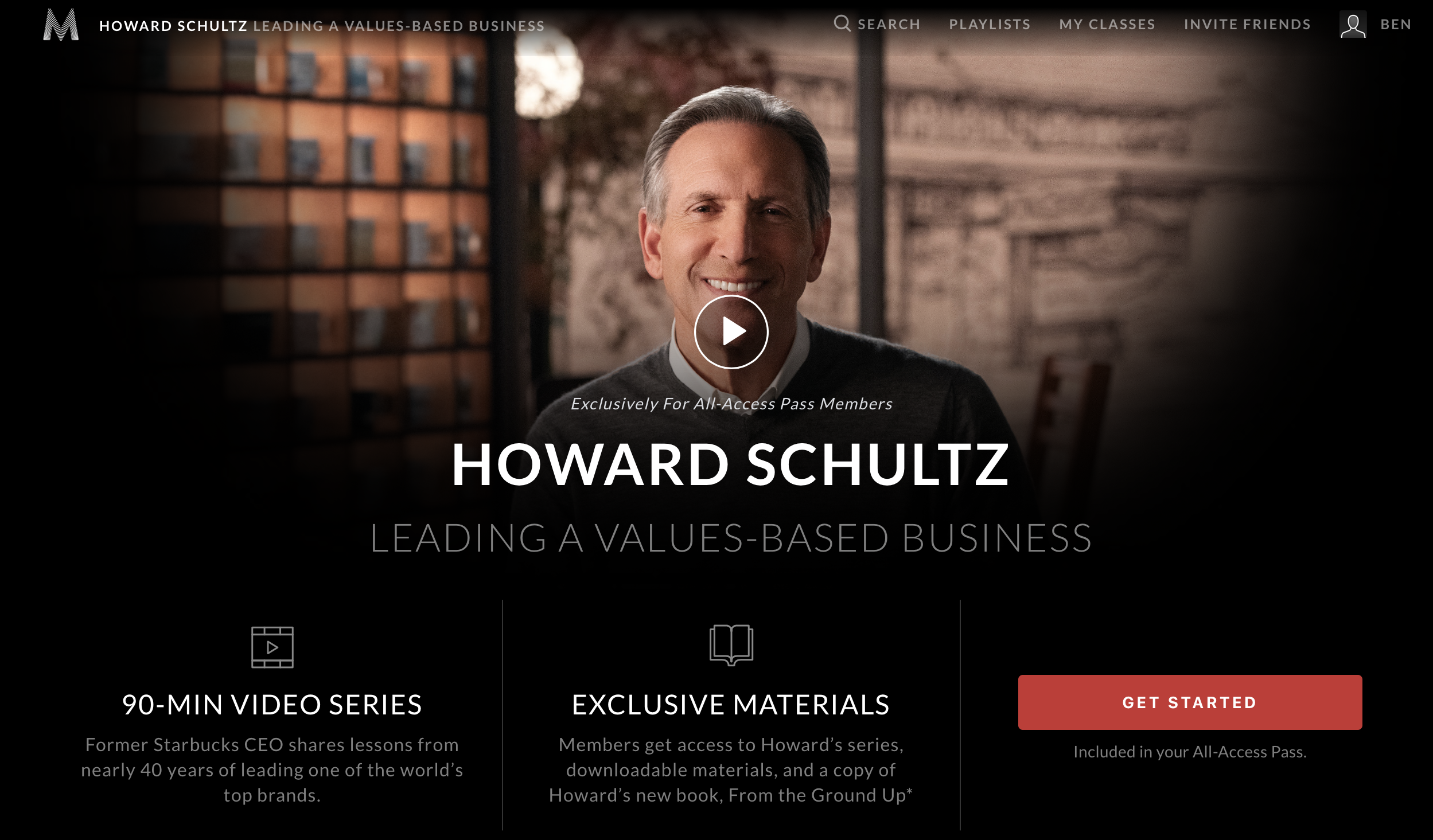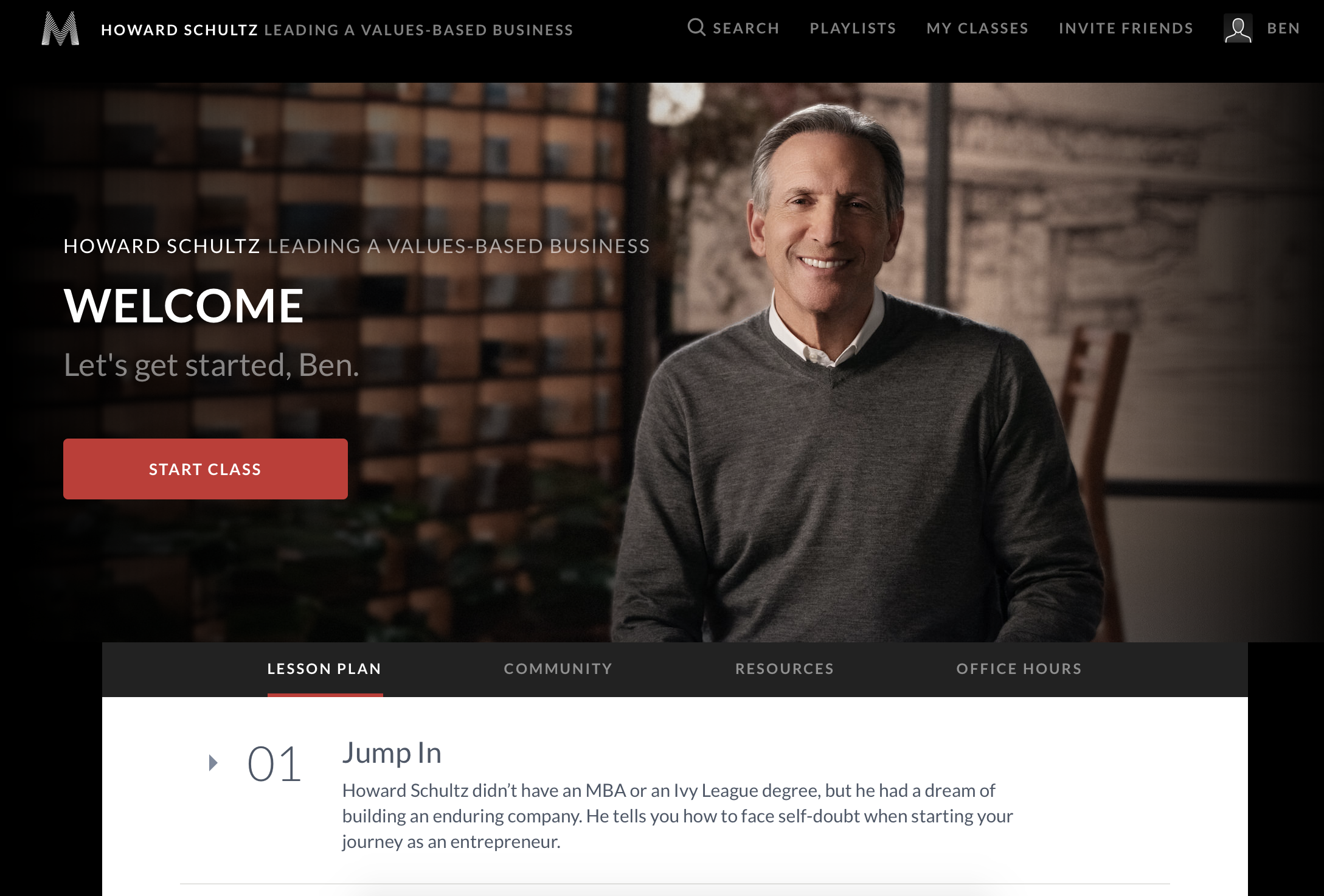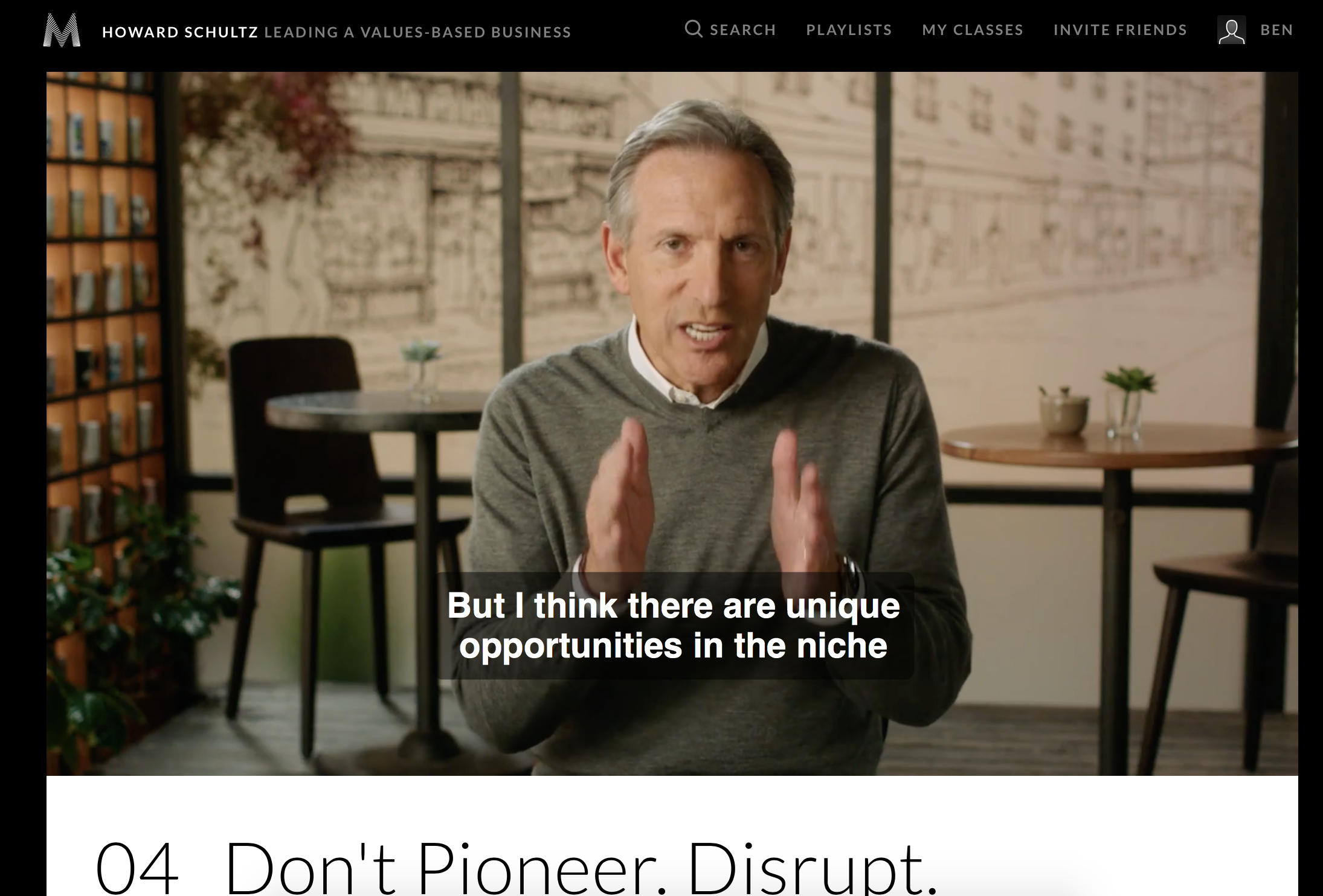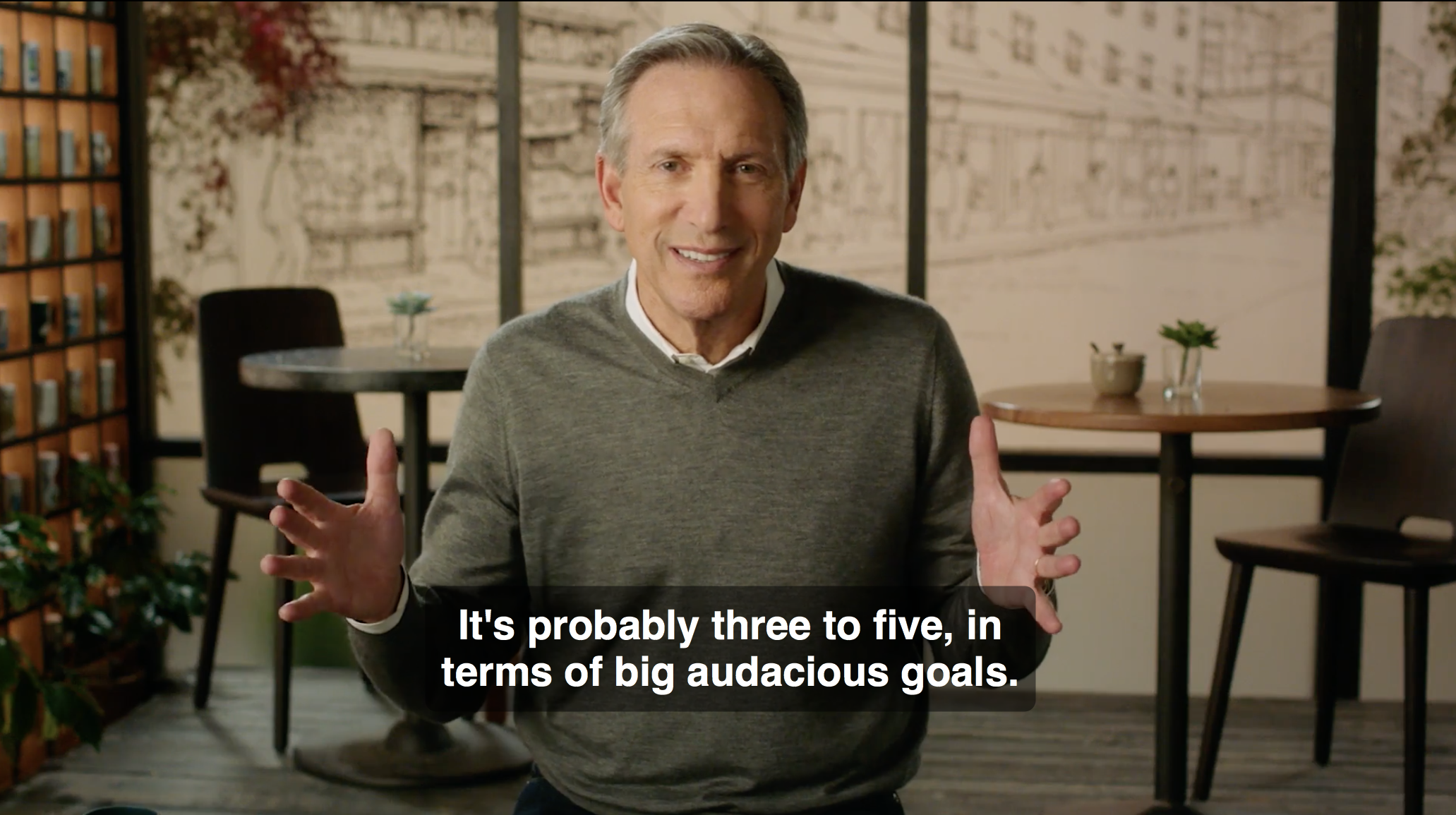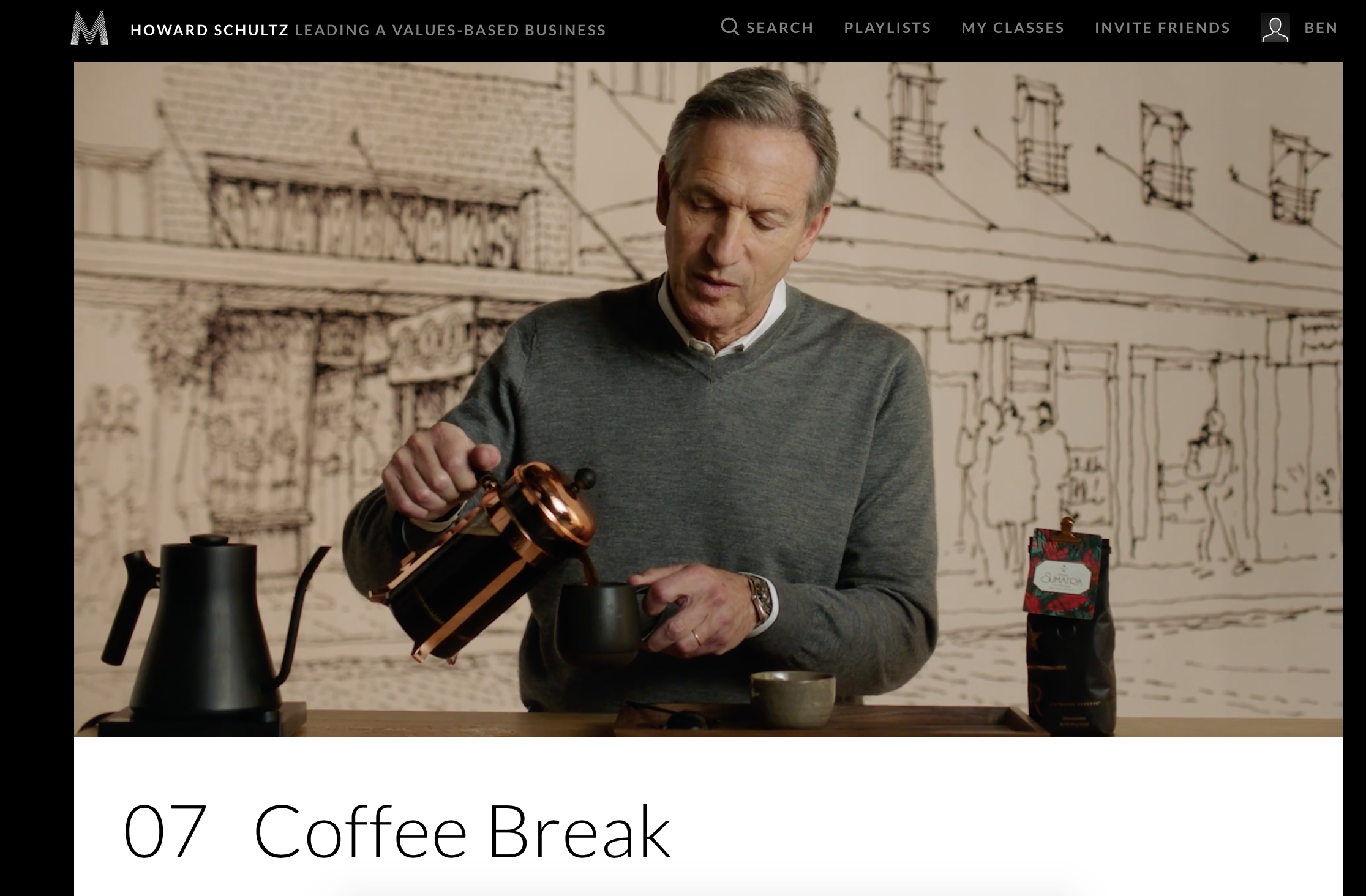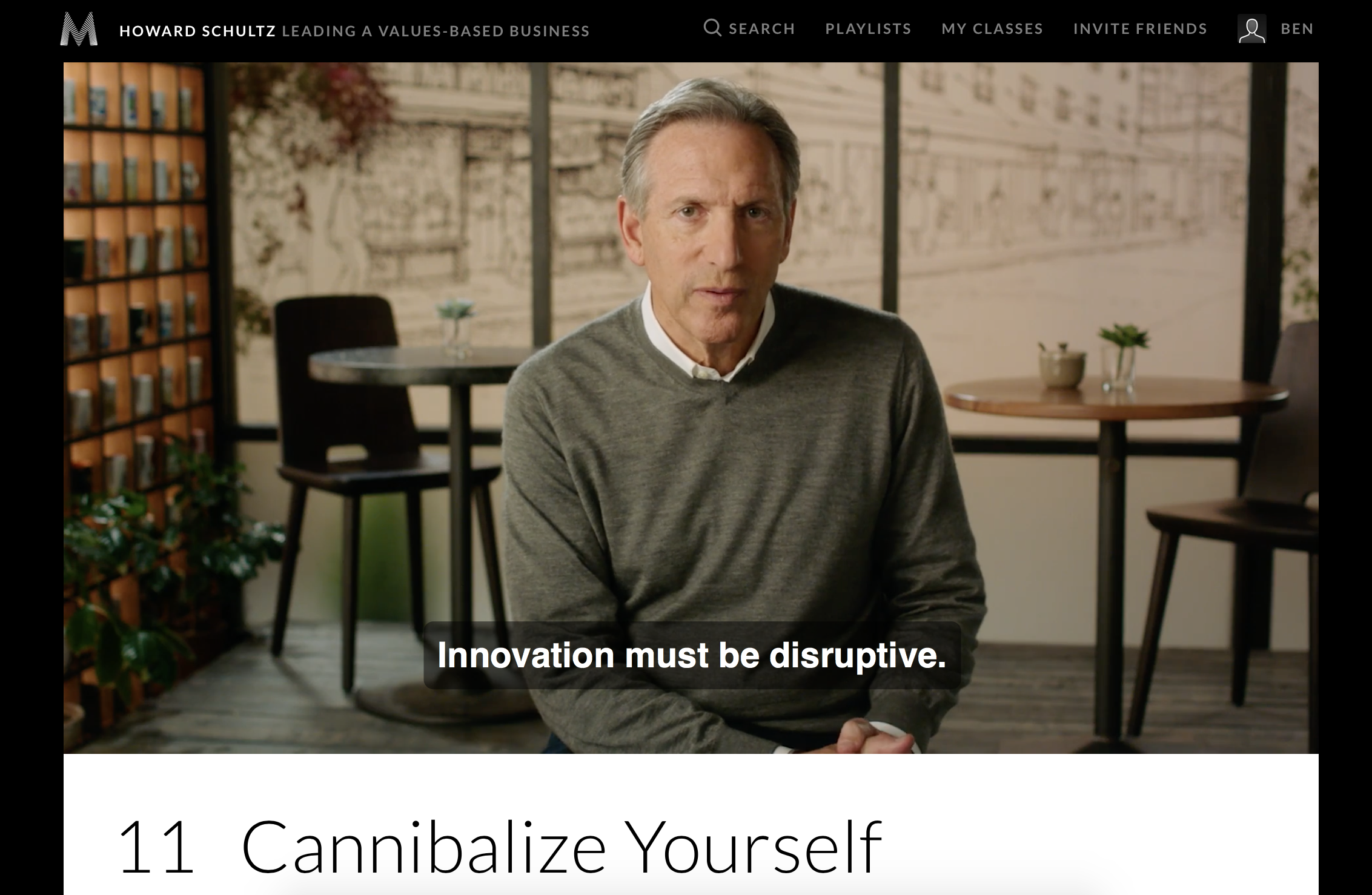Finally a MasterClass for business!
The Howard Schulz Business Leadership MasterClass is an All Access Pass exclusive. If you’re wondering whether it’s worth getting the MasterClass All Access Pass, it’s a resounding 1000% yes. It’s the best online purchase I’ve ever made and I think the price is too cheap for what you get.
One of the many cool things about having the All Access Pass is you get first access to a bunch of classes before anyone else. Being first definitely has its perks, especially when early students of the Howard Schulz MasterClass got sent a free hardback copy of his new book ahead of release.
Here’s my copy, which just arrived in the mail: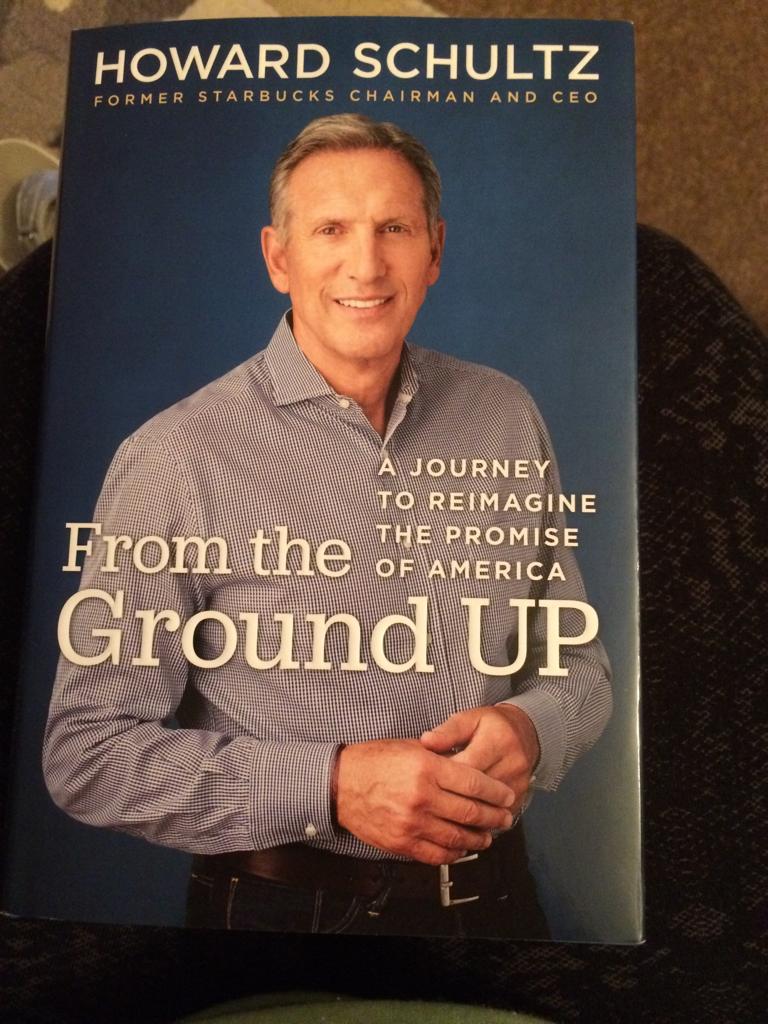
Howard Schultz Business Leadership MasterClass Review
This isn’t really a review of the Howard Schulz MasterClass. More of a brain-dump of a bunch of different things I took away from it. I loved the class and really hope there are more business masterclasses in the future.
Here are a few things I’m thinking about after taking the Howard Schulz MasterClass…
Begin brain dump…
There is a cost to jumping into an entrepreneurial pursuit, but the cost of not jumping in might be greater. It’s about taking calculated risks at the right time – and the right time isn’t far off in the future.
Balancing values and profits is the key to success, the key to creating a different kind of company. Starting out, when there were only 100 employees at Starbucks, no one there thought they could make an international brand, but they did have the conviction that they could great a different kind of company by balancing values and profits.
Howard’s childhood forged his unique business values – witnessing his father tossed aside by his company ultimately led to employee dignity and family being one of Howard’s most prized company values, which then led to Starbucks being one of the first American companies to offer health insurance and stock options to part-time employees. These values would later emerge again in the form of Starbucks offering critical illness health insurance for its partners’ parents.
Howard stresses that ‘not every decision in business is an economic one’, which might sound confusing to a lot of business owners – doesn’t everything ultimately come down to the bottom line? But he goes on to talk about how it’s the values that the company focuses on that make the company able to differentiate itself in the marketplace, while also attracting and keeping loyal employees.
This MasterClass gets deep right off the bat and forces you to ask yourself some pretty intense questions so that you can then feed those values into the company – these are questions I’ve started to think about a lot, day and night, as I make my moves into my new entrepreneurial endeavour.
One of the most common questions facing entrepreneurs starting out is whether to start a new category or disrupt an existing one.
Howard starts off his answer to this with an important warning: most businesses and entrepreneurial pursuits fail.
The odds are against you. I’ve often thought about this and always think it’s stupid when someone goes all in with their family money, risking going broke, on an idea. I know why people do it. The successes are promoted so heavily that we suffer from confirmation bias – we forget that the overwhelming majority fail.
Don’t go into the pioneering business (generally speaking). Don’t try to change human behaviour. Unless you have the patience to wait a long time, a lot of money to waste, and an extremely compelling idea and platform. This reminds me of the words of John Maynard Keynes: ‘The market can remain irrational longer than you can remain solvent.”
What I loved about the module on disrupting (instead of pioneering) was not only did Howard Schulz outline his business beliefs and principles in a way that is immediately applicable for us, but he actually gave away a business niche idea that he would go into if he were starting business again today.
I’ve actually seen this niche recommended by a few other mega-successful people I respect, so I’ll really have to put some thought into how my own skills can serve this market. Howard actually said “don’t go out and do it”, but, hey whatever, I’m gonna do it anyway.
In the module on focusing, Howard talks about the companies that flounder are the ones trying to focus on ten different things. What you really need to do is focus on 3-5 audacious goals and get stuck in achieving them. And these goals should be in areas where you can best leverage your abilities, have the most impact, and engage in the business the most.
Are you prioritising the right things in your business? Are you even asking that question regularly on a scheduled basis?
After this module, I realised I only had one goal for my business and it wasn’t that audacious. So I jotted down 4 more and suddenly felt more clear in my direction with a renewed sense of energy and motivation.
This lesson was also fantastic in that Howard went deep into unit economics (discussing sales-to-investment ratios of brick and mortar businesses, operating margins, etc).
You should over invest in culture and do so very early on in the start-up stage as creating a culture is like nurturing children. The equity of the brand should be a reflection of the company’s culture. Perform “culture audits” frequently in order to find what needs to be weeded out. This module will be particularly useful for anyone looking to create their company’s mission statement (no matter what stage the company is currently at).
The lesson on hiring a values-based team was fascinating. I was particularly taken by Schulz’s belief that the primary job of an early CEO is to build a team of world-class people with diverse experience and expertise but yet share the same values driving the company forward. Then Schulz gets into the details of the two things you need to look for when recruiting candidates and specific advice on how to approach interviewing and hiring.
Perhaps my favourite module in the Howard Schulz MasterClass was all about how to be a leader versus a manager. This was chocked full of advice covering everything from how to handle conflict, effective communication styles, setting expectations, feedback, and more.
Another module that was thoroughly fascinating was the one on cannibalising yourself. Innovation and disruption are at the heart of entrepreneurship so you should never be afraid of cannibalising your core business, making sure to continually invest in innovation and explore related categories.
This module was a real wake up call. Sometimes it takes a lot of courage to make that initial risk in your entrepreneurial journey, but once you’re on it you can easily become committed to something that isn’t working as well as it should – you forget that the risk that got you in a good position in the first place. It’s time to take another risk.
But why cannibalise yourself? Well, if you don’t do it, your competition will. You shouldn’t be looking over your shoulder at the competition. If you’re constantly innovating and disrupting, you’re the one others will follow and you won’t have time or the inclination to let others dictate the conversation. This module was superb and was packed full of advice on how to lead offensively.
In addition to all this, I loved hearing Howard’s advice about how to learn on the job, cultivating intellectual curiosity, finding a mentor, finding the right investors and what to communicate to them, how to be a leader in a time of crisis, and Howard even shows us how to make his favourite French press coffee.
If you needed another reason to sign up to the All Access Pass, this is definitely it. The amount of value and the calibre of instructors you get at MasterClass is unparalleled anywhere else in the world.
You can check out what you get in the MasterClass All Access Pass here.
